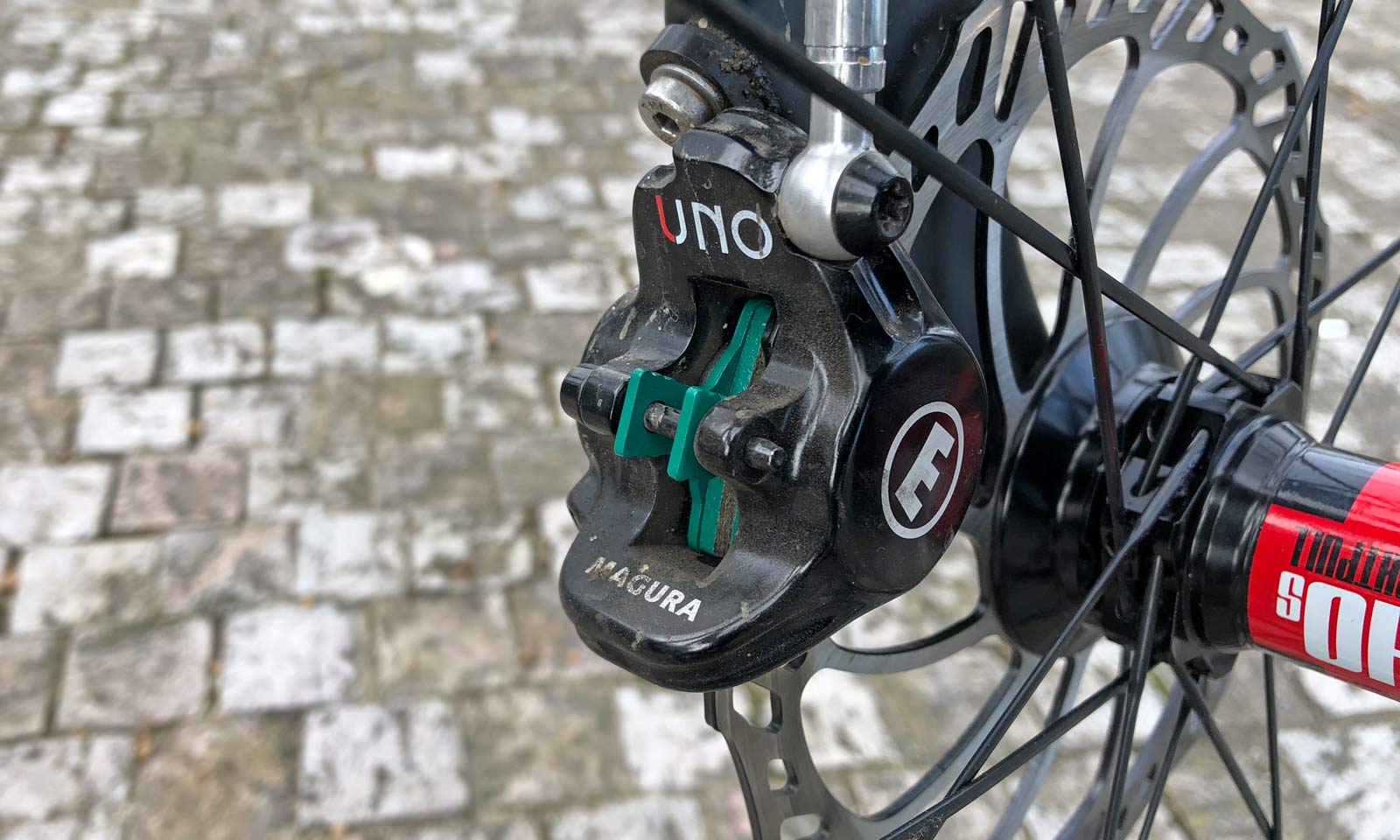We don’t often devote much time to reviewing something as small as aftermarket brake pads. But last winter we read about a set of Copper-Free pads with some curious environmental claims, produced by DiscoBrakes and ridden by Cédric Gracia. Anyway, we had a couple of bikes that needed some replacement pads, so figured why not…
DiscoBrakes Copper-Free replacement disc brake pads
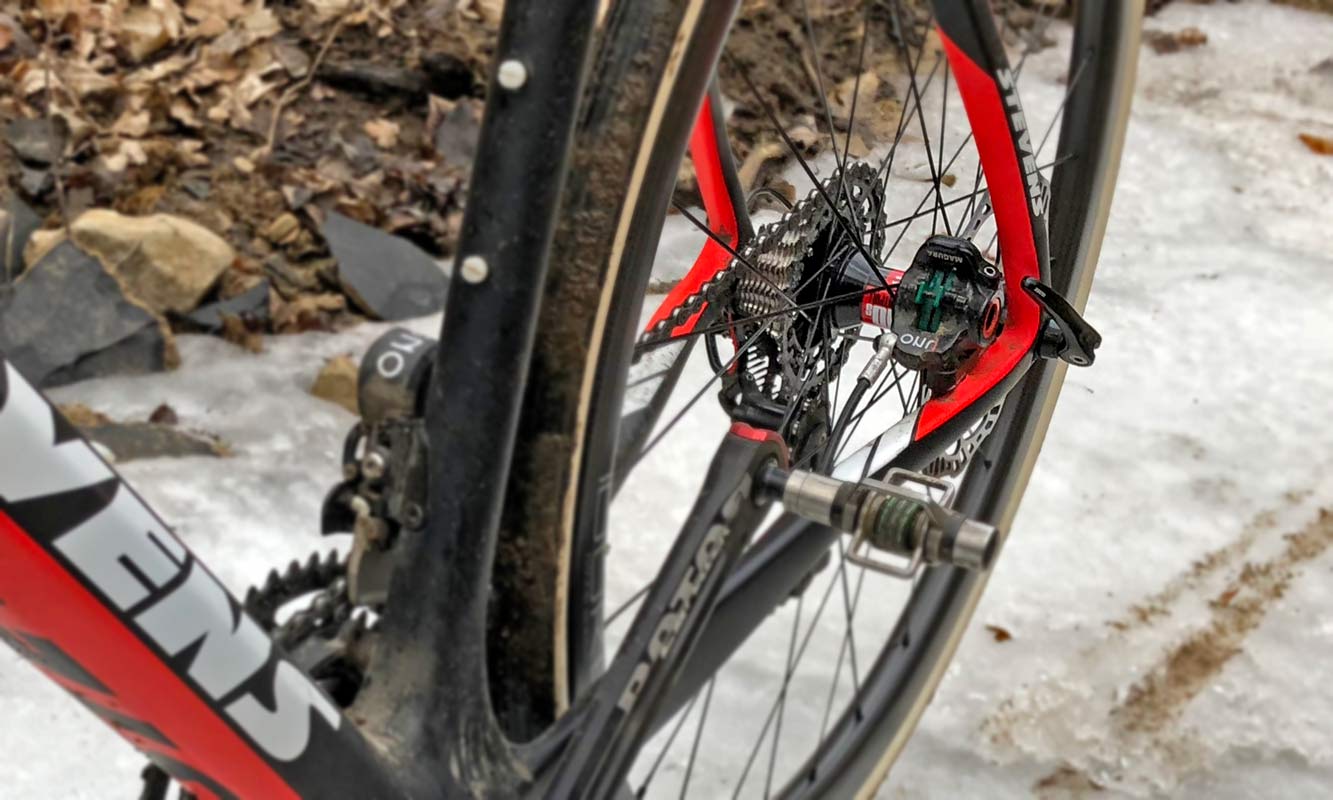 Now the reasons we don’t usually review something like brake pads isn’t because we are trying to convince you to buy more expensive stuff, or even that the industry itself wants you to consume. (The industry does want you to keep buying, though!)
Now the reasons we don’t usually review something like brake pads isn’t because we are trying to convince you to buy more expensive stuff, or even that the industry itself wants you to consume. (The industry does want you to keep buying, though!)
No, it mostly comes down to the fact that most cyclists are happy to experiment on their own when they are only shelling out a little bit of cash. I mean buying two sets of these Copper-Free pads (the most expensive ones that DiscoBrakes sells) for my old XTR M985 brakes would only cost $23.22/23.50€ (and only $32.79/33.59€ if you buy four pairs of pads.) When you are about to spend $5000€ on a new mountain bike it’s reassuring to read our Bikerumor advice. Less so when it’s just a set of brake pads that are going to wear out next year anyway.
DiscoBrakes Copper-Free disc brake pads – Tech Details
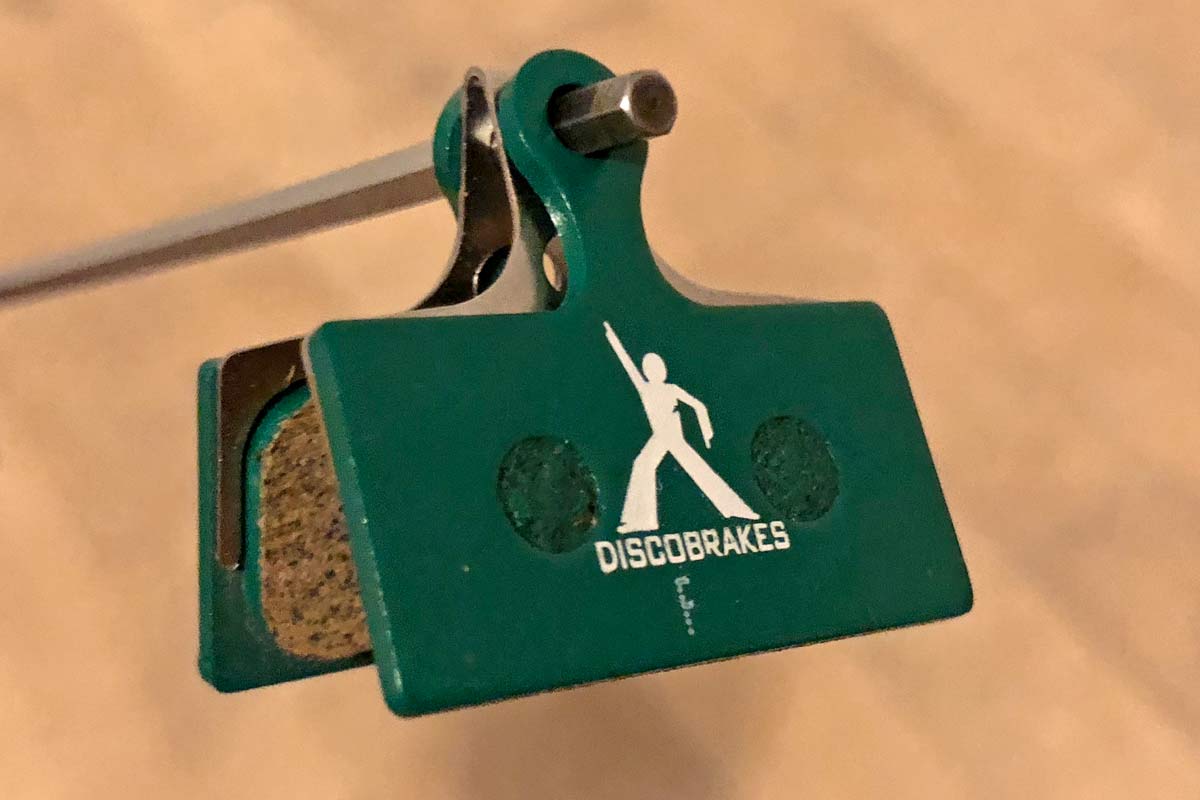 So why did we review these in the end? Was it because they have a little disco guy hustling along on the back with some Travolta inspired dance moves? I’m not gonna lie. That helped.
So why did we review these in the end? Was it because they have a little disco guy hustling along on the back with some Travolta inspired dance moves? I’m not gonna lie. That helped.
Was it nostalgia for websites design in the late 1990s? No, we had to get past that actually.
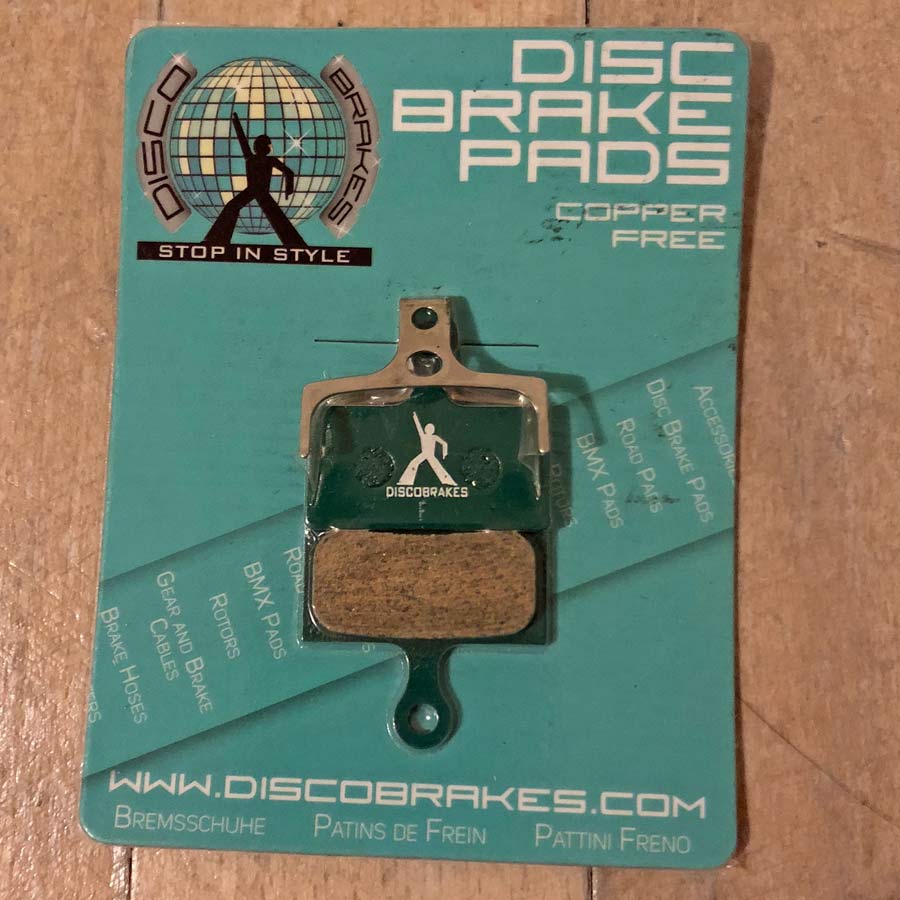 But maybe it was also because Disco claimed that these green pads are their best performing all around pads. And since they are free of copper, that’s a tiny bit less heavy metal dust we’ll leave out on the trail.
But maybe it was also because Disco claimed that these green pads are their best performing all around pads. And since they are free of copper, that’s a tiny bit less heavy metal dust we’ll leave out on the trail.
Now just to be clear, the amount of copper in a regular set of pads can’t be more than a couple of grams at most. And who knows if the carbon reinforced silicon carbide compound of these is much better for the environment in the long run anyway.
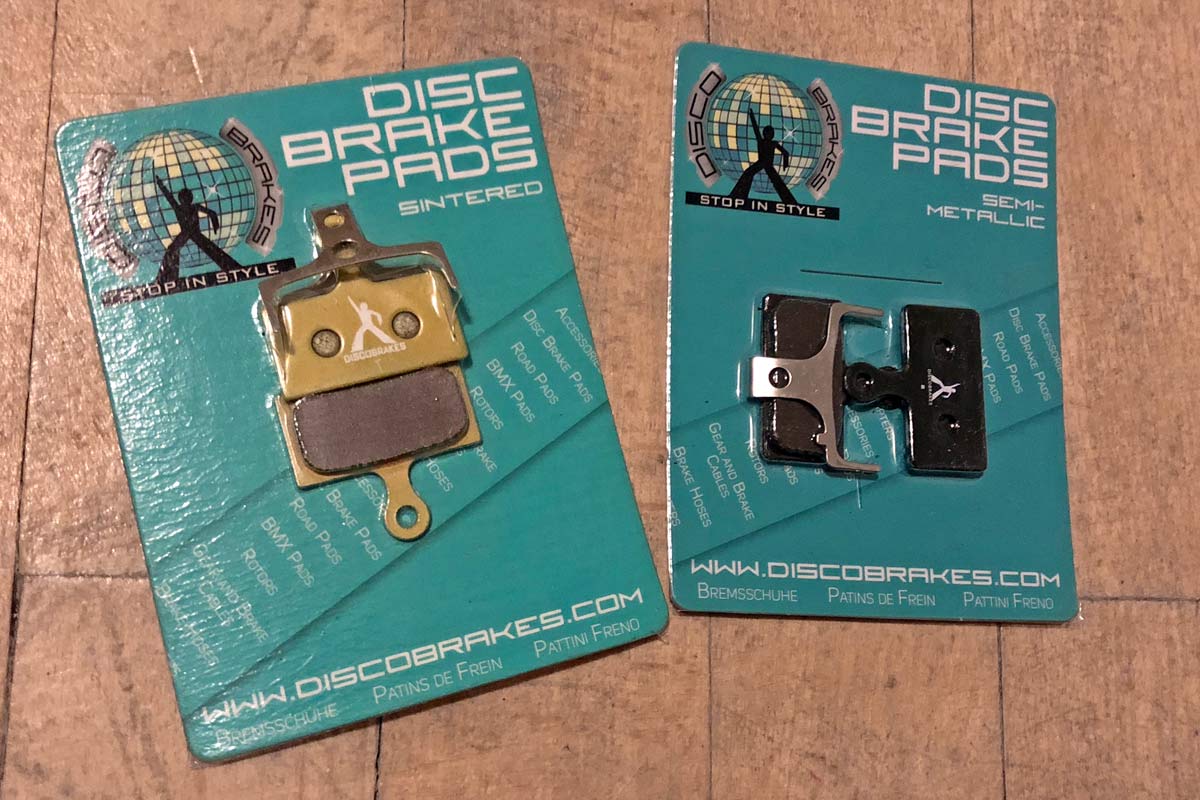 But if you want more conventional sintered or semi-metallic pads, Disco does that as well, usually saving you a few more bucks too.
But if you want more conventional sintered or semi-metallic pads, Disco does that as well, usually saving you a few more bucks too.
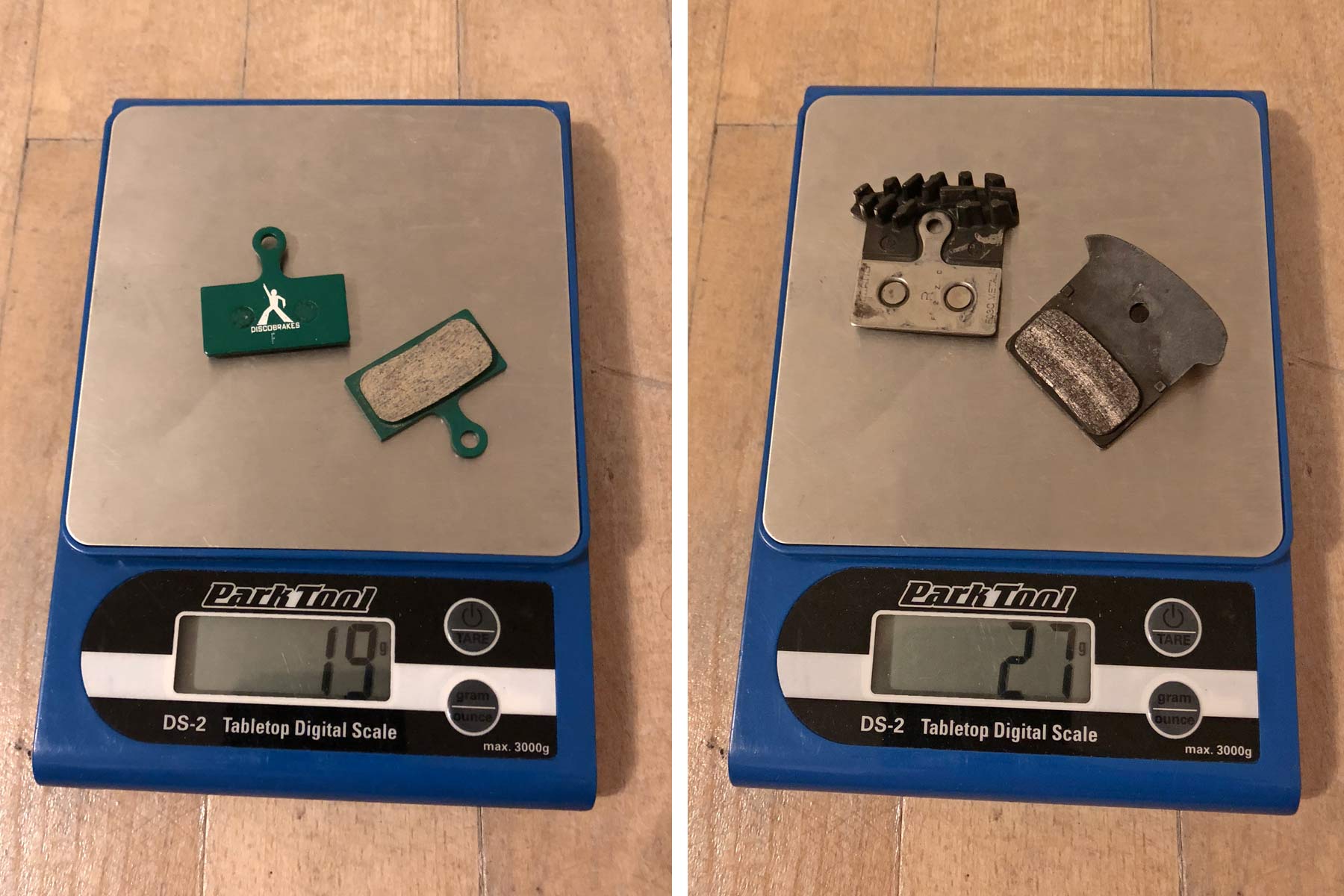 But we liked the looks of the bright green, steel-backed pads, and without the heat-dissipating alloy fins from the stock XTR pads, they also saved me a few grams. I never felt like I was pushing the overheating limit of the M985 brakes on my light XC bike in the past, so wasn’t worried about decreased brake cooling. And in the end I noticed zero heat buildup performance difference. Plus they were a cheap consumable part, so if they lasted, I’d throw a set on the cross bike too, which has a tendency to burn through brake pads, riding & racing in foul weather.
But we liked the looks of the bright green, steel-backed pads, and without the heat-dissipating alloy fins from the stock XTR pads, they also saved me a few grams. I never felt like I was pushing the overheating limit of the M985 brakes on my light XC bike in the past, so wasn’t worried about decreased brake cooling. And in the end I noticed zero heat buildup performance difference. Plus they were a cheap consumable part, so if they lasted, I’d throw a set on the cross bike too, which has a tendency to burn through brake pads, riding & racing in foul weather.
Stoppin with DiscoBrakes Copper-Free disc brake pads
So how do they ride?
Well, on the Shimano IceTech rotors that I have worn out three previous sets of factory Shimano F03C metallic OEM pads over the years, it actually took something like 200km to re-bed the rotors in with the new pads.
At first, switching from old rotors that had for years been stopped with metal compound pads to these non-metal pads resulted in pulsing under most braking conditions. It was pretty consistent for more than a month of trail riding in both dry, dusty and rainy conditions. Then, the pulsing just stopped. It seems the last vestige or metallic pad was gone from the rotors. Now, most of one riding season and 1000km later, and the pads are less than 1/3 worn, suggesting they should last for at least two years at this rate (on par or better than the OEM pads.)
Replacing the organic Performance pads in the set of Magura MT8 brakes that make up the Rotor UNO groupset was an even smoother transition. Since the accompanying Magura rotors hadn’t been used with metallic pads, braking was perfect and smooth with the DiscoBrakes Copper-Free pads from the start. Power is also consistent and strong, with quiet running and slow wear. Another 1200km here of riding & CX racing, and the pads barely seem worn.
All in all, the copper-free pads seem to deliver powerful, reliable braking (after proper bed-in), at about half the price of many stock pads. Are the better for the environment? Maybe. But realistically, if you want to have an equal impact on the environment, you could probably just drop one car trip next week, and ride to work by bike, which is also probably not a bad idea.
